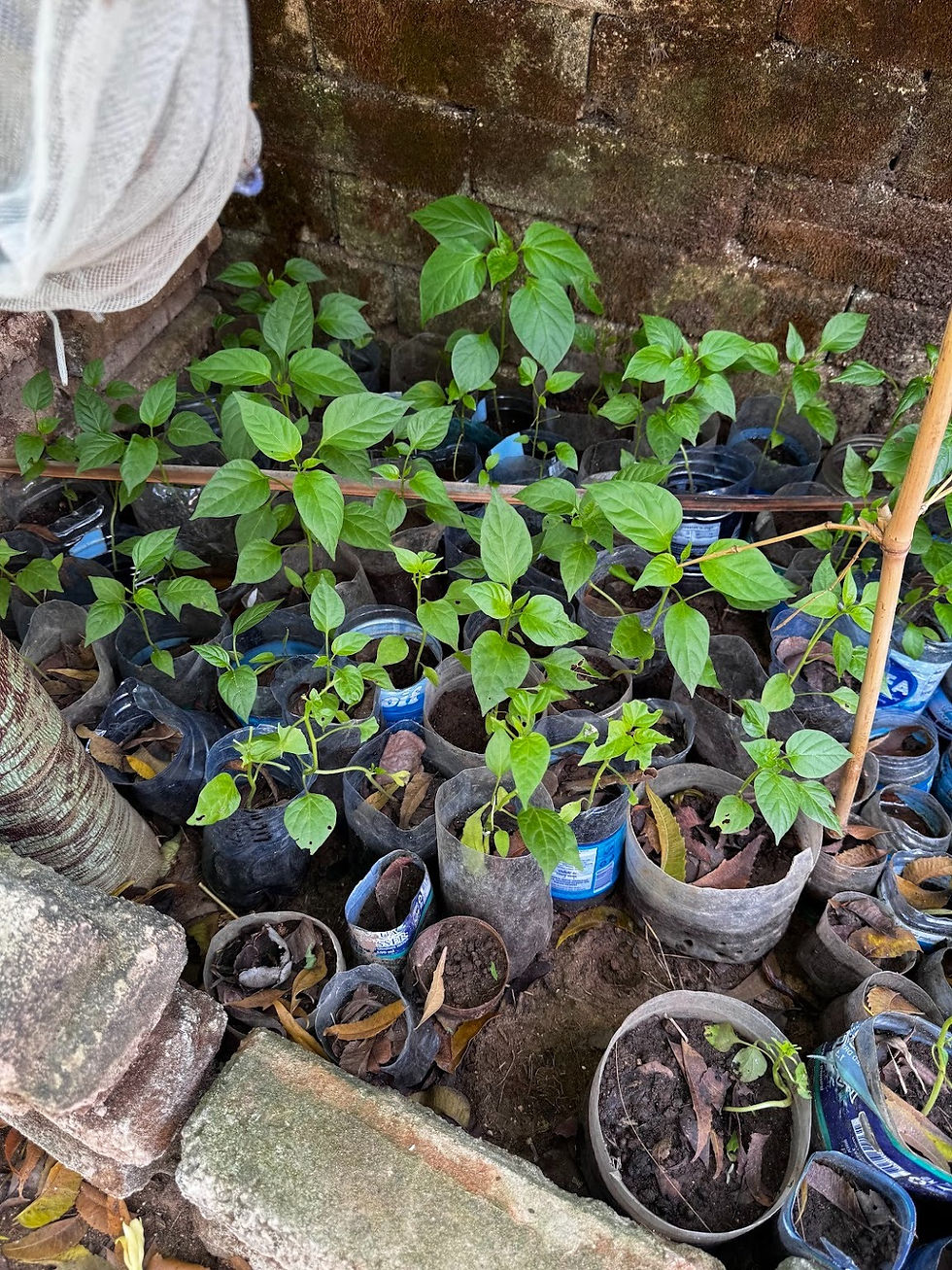Addressing Food Security Needs in East African Coastal Communities Through Regenerative Agriculture.
- simmonenjage
- Oct 21
- 4 min read
Updated: Oct 22
Table of Contents
Introduction: Why Food Security Matters on the Coast
On the East African coast, communities face unique challenges to food security: rising costs, soil degradation, unpredictable weather, and dependence on imported or non-local foods. Coastal regions often have fertile potential but struggle with access to sustainable means of cultivation.
Ocean Sole has stepped in with a vision: using regenerative agriculture to not only grow food—but to heal the land, empower local people (especially women), and build a resilient food system grounded in local culture and ecology.

What Is Regenerative Agriculture?
Regenerative agriculture is more than “organic.” It’s a set of practices that restore soil, increase biodiversity, improve water cycles, capture carbon, and promote long-term ecosystem health. These methods include: composting, using zai pits, hardening off seedlings, companion planting, building leachate, etc.
Ocean Sole’s Community Garden: A Regenerative Model
Creation & infrastructure
Founded in December 2024, this community garden is part of Ocean Sole’s mission to address food insecurity with locally grown, nutritious produce. It was designed as a sustainable & regenerative agricultural initiative, not just to grow food, but to heal soil and restore local ecosystems. The garden is women-led and community-driven, especially via Ocean Mamas, who are trained in permaculture techniques.
Key practices observed
Compost creation: Organic garden waste is turned into compost and leachate (through worm bins). This improves soil fertility and helps reduce dependency on chemical fertilizers.

Digging of zai pits: These are planting pits designed to capture water and concentrate nutrients where plants need them.

Hardening off of chilli seedlings: Ensuring plants are gradually acclimated before transplanting reduces shock and improves survival rates.

Leachate via worm bin: Using worms to break down organic matter and produce nutrient-rich liquid (leachate) for plants.

Biodiversity, nutrition & circular systems
Growing spinach and different herbs along with other indigenous crops enriches diets and supports health. Companion planting and focus on indigenous species foster pollinators and healthy soil microbes. A circular support system: produce helps feed community & staff; compost and leachate feed the garden; knowledge cycles outward through training.


Community & women empowerment
The Ocean Mamas are not just caregivers of the garden; they are being trained, leading, and sharing skills. Education in action: the garden is a site for permaculture training; the Mamaz host other groups and pass on what they learn. Producing compost (and potentially selling compost, or engaging in related economic activities) offers economic opportunity and dignity.

Challenges and Lessons Learned
While the garden shows great promise, several realities must be navigated:
Water access & climate: Coastal regions may have dry spells, saltwater intrusion, or irregular rainfall. Infrastructure (water tanks, retention systems) is key.
Soil remediation: Some land may be depleted—restoring it takes time, inputs (compost, organic matter), patience.
Skill gaps: Though training is happening, consistency of knowledge, mentorship, and resources (tools, seeds) are needed.
Scaling & sustainability: Ensuring community ownership, pathways for economic return, and maintaining regenerative practices even under pressure
.
From this we learn that, small steps taken like creating zai pits and composting can make big soil differences - especially as we prepare for the dry season.
Broader Impact & What This Means for Coastal Regions
Models like this garden provide proof that food security and environmental restoration can go hand in hand.
Women-led, community‐based initiatives build stronger social fabric, more equitable opportunity, and better health outcomes.
Indigenous crops + biodiversity help adapt to climate change, improve nutrition, and preserve local ecosystems.
Such gardens can serve as hubs of learning: neighboring communities can replicate or adapt practices.
How You Can Support & Join the Movement
Support Ocean Sole’s work in regenerative agriculture through donations or volunteering.
Share this story — spreading awareness helps bring resources and partners.
Learn about permaculture, composting, and regenerative practices; practice them wherever you are.
Get involved with the Mamaz program — if you're local, join training.



Comments